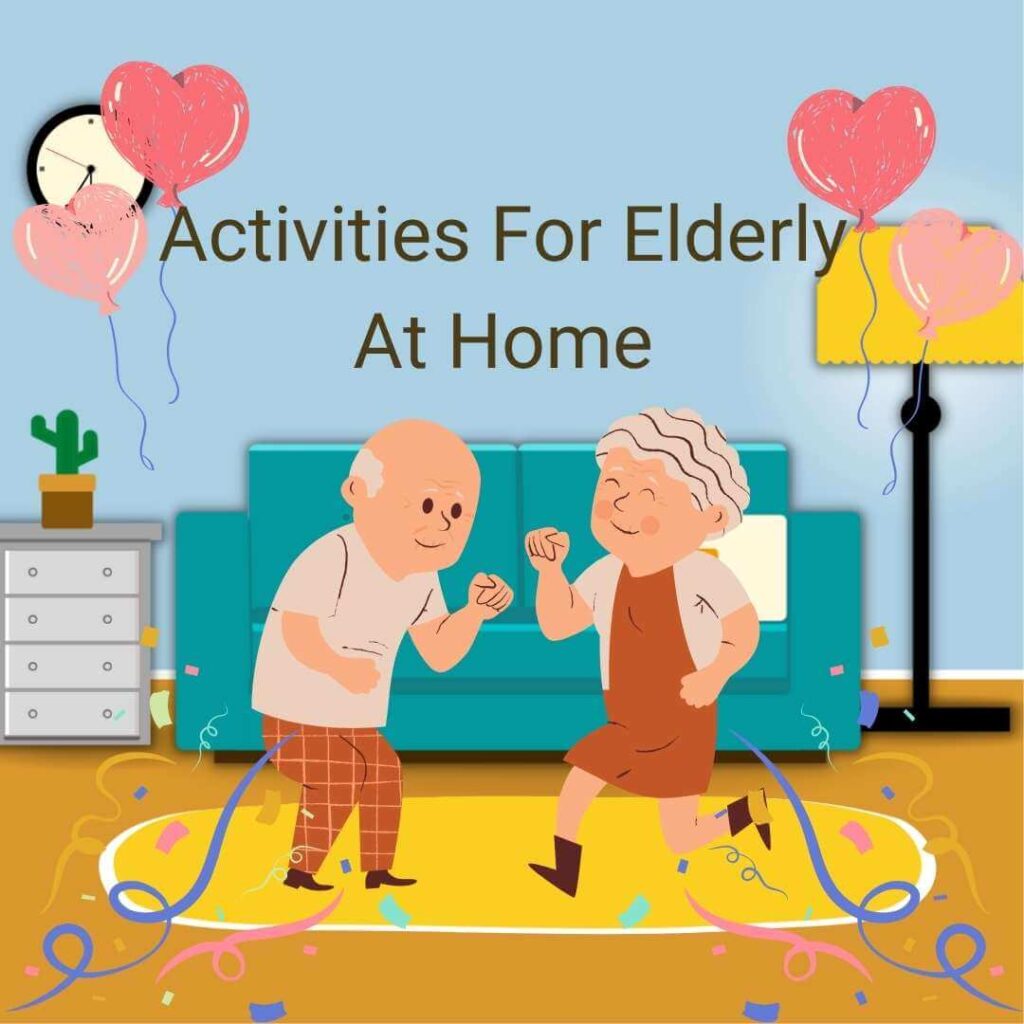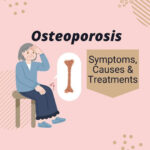Hey, great idea to browse our engaging activities for elderly at home. With the activities below, you will stay active, which is vital for maintaining physical health, cognitive function, and emotional well-being.

8 Stimulating Activities for Elderly At Home
1. Brain Games and Puzzles
Brain games, puzzles, and crosswords are a great way to provide mental stimulation while also offering a fun challenge. These activities help seniors exercise their cognitive abilities, enhance memory retention, and improve problem-solving skills.
- Crossword puzzles are a fantastic way to stimulate the brain as they require word association, vocabulary recall, and critical thinking. You can find crossword puzzle books specifically designed for seniors with larger print sizes for easy reading.
- Sudoku is a number-based puzzle game that tests logical reasoning and concentration. The goal is to fill a grid with numbers without repeating any digits in each row or column.
2. Board Games and Card Games: Fun for the Whole Family
Board games and card games are some of the favorite indoor activities for elderly at home!
- Card games like Rummy, Poker, or Bridge can be enjoyed by seniors of all skill levels. The rules are easy to learn, and the friendly competition adds an exciting element to the game. For those who prefer a more strategic challenge, board games like Scrabble or Chess provide mental stimulation while fostering social interaction.
Not only do these games keep seniors engaged and entertained, but they also offer numerous cognitive benefits. Playing card games helps improve memory, concentration, and problem-solving skills. Strategic board games promote critical thinking and decision-making abilities. Moreover, these activities can help prevent cognitive decline and enhance brain health in senior citizens.
3. Books and Audiobooks
Reading books or listening to audiobooks is an enjoyable way for seniors to engage their minds and expand their knowledge while offering a pleasant escape.
- Book clubs or reading groups not only fosters social connections but also adds an element of excitement and shared experiences.
- Audiobooks are an excellent alternative for those who may have difficulty reading due to poor eyesight or other physical limitations.
4. Arts and Crafts Projects
Engaging in arts and crafts projects is not only enjoyable but also offers various cognitive benefits for seniors with limited mobility.
- Painting is a wonderful activity that allows you to express your creativity.
- Knitting is another popular craft that seniors can undertake as it helps improve dexterity and concentration.
- Scrapbooking provides an opportunity for seniors to reminisce about cherished memories by organizing photographs into personalized albums. It stimulates cognitive functions such as memory recall while creating something meaningful.
- Pottery making is not only a creative hobby but also an opportunity for seniors to work with their hands.
- Jewelry making is another engaging activity to showcase your creativity while producing beautiful accessories. Explore different techniques such as beadwork, wire wrapping, or even metal stamping.
5. Cooking and Baking
The kitchen is not just a place to prepare meals; it can also become a hub of creativity and enjoyment for elderly adults at home. Cooking or baking offers an excellent opportunity to explore new recipes, experiment with flavors, and indulge in delicious treats.
Teach family members your treasured recipes with these fun activities for elderly at home.
6. Online Classes and Workshops
The internet is a treasure trove of knowledge just waiting to be explored. Many organizations and institutions offer online classes and workshops tailored towards older adults’ interests and hobbies. Whether it’s learning a new language, learning a new skill, painting, baking or even mastering technology, there is something for everyone.
7. Virtual Tours and Online Museum Visits
For senior citizen with limited mobility, virtual adventures are a great alternative that allows you to visit famous landmarks, historical sites, or even natural wonders from around the world.
Online museum visits are an excellent way for seniors to indulge in art and culture. They can browse through virtual galleries, learn about different artistic movements, and admire masterpieces from renowned artists. It’s a fantastic opportunity for intellectual stimulation and expanding your knowledge.
8. Indoor Gardening
Even if you don’t have access to a garden or outdoor space, there are plenty of options for cultivating plants inside your home. Growing herbs in small pots or tending to potted plants can bring joy and fulfillment to senior citizens. Taking care of plants has been shown to reduce stress levels, boost mood, and improve overall well-being.
Outdoor Activities for Elderly
Gardening
- Gardening has long been recognized as a therapeutic activity that provides both physical and mental benefits. For senior citizens who enjoy spending time outdoors, tending to plants, flowers, or vegetables can be incredibly rewarding.
Light Exercises and Yoga
Regular physical activity helps improve flexibility, balance, strength, and cardiovascular health while reducing the risk of falls or injuries.
- Walking: An exercise that’s gentle on joints but still effective in improving mobility and muscle tone, walking is an ideal choice.
- Yoga is another great way as it combines gentle movements with deep breathing techniques that promote relaxation, stress reduction, and posture.
Light exercises don’t have to be practiced outdoors, they are also great activities for elderly at home.
Excursions
There are many excursions specifically designed for seniors. Those are usually organized by your local church, senior or community center, retirement community, non profit organizations or travel companies.
- County fairs
- Comedy club
- Concerts
- Art shows
- Wineries
- Organized group tour
Why Elderly Need To Engage In Activities
Let’s explore why it is so important for seniors to stay active and the potential negative consequences of a sedentary lifestyle.
Mental and Emotional Wellbeing
Engaging in various activities can have a profound impact on the mental and emotional wellbeing of elderly adults. It provides them with a sense of purpose, boosts their self-esteem, and helps combat feelings of loneliness or isolation. When seniors participate in stimulating activities, such as puzzles, crafts, or hobbies they enjoy, it can minimize agitation and depression while promoting emotional connection and self-expression.
Maintaining Cognitive Function
One significant benefit of participating in activities for elderly adults is the positive impact on cognitive function. Regular mental stimulation through engaging tasks helps keep the brain active and healthy. Just like physical exercise strengthens muscles, challenging the mind keeps it sharp.
Mentally stimulating activities promote neural connections within the brain. These connections help maintain cognitive skills such as memory retention, problem-solving abilities, decision-making skills, and overall mental agility.
Preventing Decline
A sedentary lifestyle can lead to various health issues among older adults. Lack of physical activity increases the risk of chronic conditions like heart disease, diabetes, and obesity. Engaging in regular activities helps combat these risks by promoting physical fitness and overall health.
By incorporating exercises suitable for their age and physical abilities, senior citizens can strengthen their muscles, improve balance, and enhance flexibility. Simple activities like walking, swimming, or even chair exercises can make a significant difference in maintaining physical wellbeing.
Furthermore, staying active also contributes to preventing cognitive decline. Studies have shown that engaging in mentally stimulating activities lowers the risk of developing conditions such as dementia or Alzheimer’s disease. By challenging the brain through puzzles, learning new skills or languages, or even engaging in social activities that require mental effort like playing board games or attending lectures, seniors can help keep their minds sharp and reduce the likelihood of cognitive decline.
Conclusion
Staying active and connected is crucial for the well-being of senior citizens. Engaging in stimulating activities for elderly at home not only helps to improve physical health but also enhances mental and emotional well-being.
Read our guide on home safety for elderly to learn how to conduct these activities responsibly and prevent falls.
FAQs
How often should my elderly loved one engage in these activities?
The frequency of engagement depends on their energy levels, interests, and overall health condition. It’s important to find a balance between keeping them engaged without overwhelming them. Start with a few times per week and adjust accordingly based on their response.
What if my loved one has limited mobility?
Not an issue! There are plenty of enjoyable activities specifically designed for seniors with limited mobility mentioned earlier in this blog post. From gentle exercises to crafts and virtual experiences, there are options available for everyone.
Are there any safety precautions I should consider?
Yes, safety is paramount. Ensure that the activities chosen are suitable for your loved one’s physical abilities and health condition. Make necessary modifications, provide assistance when needed, and consult with their healthcare provider if you have any concerns.
How can I encourage my loved one to stay connected online?
Introduce them to social media platforms or video calling apps and guide them through the process of setting up accounts. Show them how to connect with family and friends online and reassure them of the benefits of staying connected on social media. Be patient and supportive as they navigate this new digital world.
References
https://www.sciencedirect.com/science/article/pii/S0197457214004133
https://www.sciencedirect.com/science/article/abs/pii/S0277953617302745
- How To Improve Gut Microbiome – 26 May 2024
- Chemo neuropathy treatment: What to do? – 19 May 2024
- How to Prevent Osteoporosis: Effective Strategies & Simple Steps – 28 December 2023





